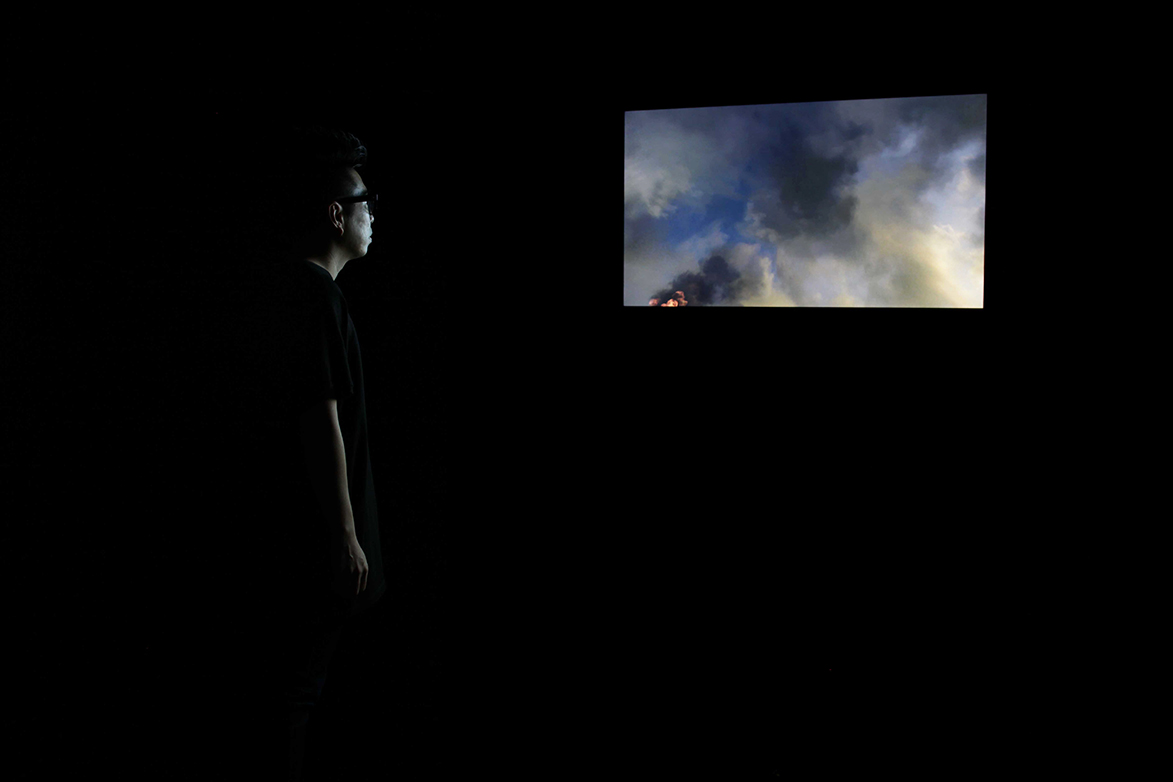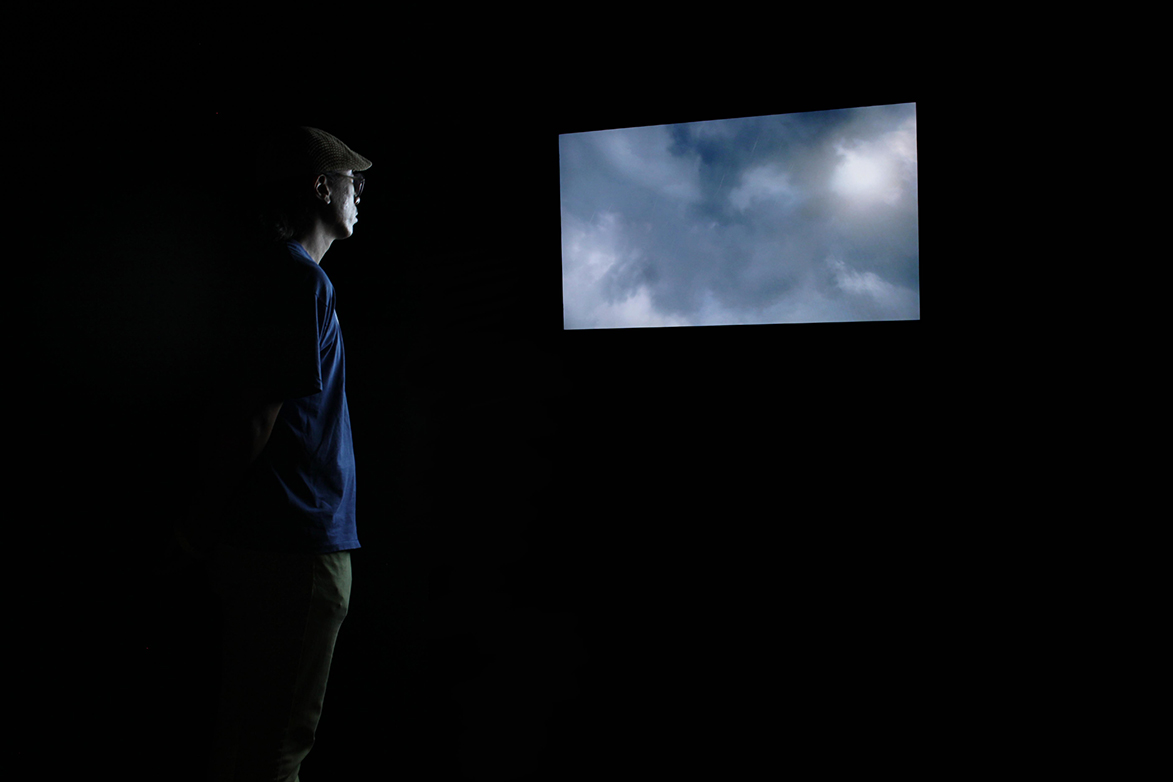Shows
Ip Yuk Yiu’s “Clouds Falling: Machinima”


Ip Yuk Yiu
Clouds Falling: Machinima
Foo Tak Building
Hong Kong
Clouds Falling (2016) by Hong Kong filmmaker and artist Ip Yuk Yiu has a simple setup: in a lightless room painted black, three gray cushions rest on the floor before an Xbox 360 video game console, an attached game controller and two black speakers. Overhead, a flat panel display suspends from the ceiling. On the screen, we see the sky—or, a sky. Ip has over 100 skies to choose from, all appropriated from the first-person shooter video game franchise Call of Duty (2003– ). During one visit, we are shown static clouds and animated rain as sounds of scraping wind fill the restful room, the pitter-patter of water drops punctuated by brief flashes of white lightning; thunder is expected but it never claps. On a second stopover 24 hours later, ashes glide like autumn leaves on the wind, embers absent, as paired fighter jets zip by in a mere fraction of a second; blink and you’ll miss them.
Every afternoon, Ip visits Hong Kong’s Wanchai district and walks into Foo Tak Building, a hidden hub for local artists tucked into an old tenement that, at first glance, looks exactly like other rundown apartment buildings on the same block. However, within Foo Tak is a plethora of art and cultural entities supported by a group called Art and Culture Outreach (ACO). For the show “Clouds Falling: Machinima by Ip Yuk Yiu,” ACO provided space on the 8th floor of Foo Tak Building, where Ip recalibrates Clouds Falling every afternoon.

Ip sees himself as an outsider among the small circle of career filmmakers in Hong Kong, someone who dives headfirst into experimental projects that at times involve hacking proprietary hardware. Four years ago, he began exploring the possibility of using video games as a medium, using a map of Kowloon in the popular video game Call of Duty: Black Ops (2010) to present a digitized study of Hong Kong’s infamous Kowloon Walled City as interpreted by American video game developers. As in the more recent Clouds Falling, the guns were gone.
As a habitual gamer, he understands the immersive nature of rendered environments found in some video games. In between storming hills and clearing bunkers, he has caught himself wondering whether the beaches, skies and mountains encountered by his avatar are real or virtual. By putting those textures front and center and removing all other distractions—the human models, vehicles and gunfire—Ip wants his audience to consider the virtuality of his real-time renderings. “I see this as subversion,” he said. “I am subverting a violent video game.”

Experimental filmmaker Phil Solomon used the video game Grand Theft Auto IV to make Empire (both 2008), referencing Andy Warhol’s eight-hour silent film. The artist-programmer collective Radical Software Group’s “Prepared PlayStation” series (2004–05) was a 21st-century nod to the prepared piano arrangements of John Cage, which now live digitally as smartphone and tablet apps. Earlier yet, Cory Arcangel hacked one of Nintendo’s most successful classic games to strip it of a beloved plumber and his adversaries, and gave us Super Mario Clouds (2002). Like those who came before him, Ip spawned new work based on a personal fascination with a piece of existing media—Yoko Ono’s Sky TV (1966), one of the first video installations ever made.
Tracing the evolution of a broader human obsession with captured images, Ip mentioned his puzzlement at the public’s willingness to shell out good money for short viewings in cameras obscura, dark chambers in which an external landscape is refracted onto a viewing table via a periscope. The camera obscura captures an image optically, one that can be freely viewed once we step outside. Ono put a spin on the idea in Sky TV by connecting viewers in an art space with a live feed of the sky captured with electronic apparatus. Ip took a step further, showing his viewers a sky that is algorithmically generated, but still mesmeric. With absolutely no narrative, Clouds Falling is his most abstract work to date.
The game controller on the floor before us was like bait, tempting viewers to press a button and abandon the constantly rendering heavens. In the black box, a video game console churned out all meaningful information in our visual field. Ip guarded the controller hawkishly—to view his clouds meant to surrender every shred of control; we could only choose to stay or leave. Those who lingered were left with the sentiment that our future is bright: hard light will ever billow from our trusted screens and headsets, illuminating even the darkest nights.
“Clouds Falling: Machinima by Ip Yuk Yiu” is on view on the 8th floor of Foo Tak Building until November 27, 2016.
Brady Ng is Hong Kong desk editor at ArtAsiaPacific.







